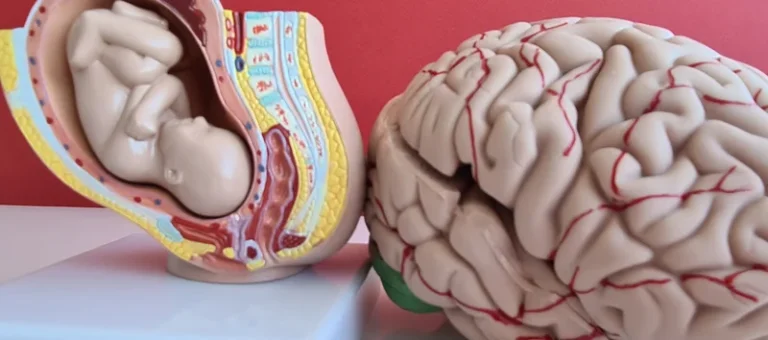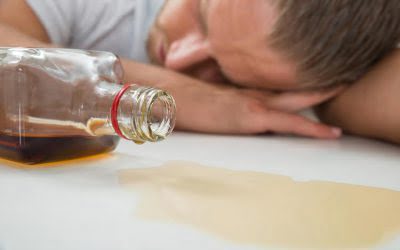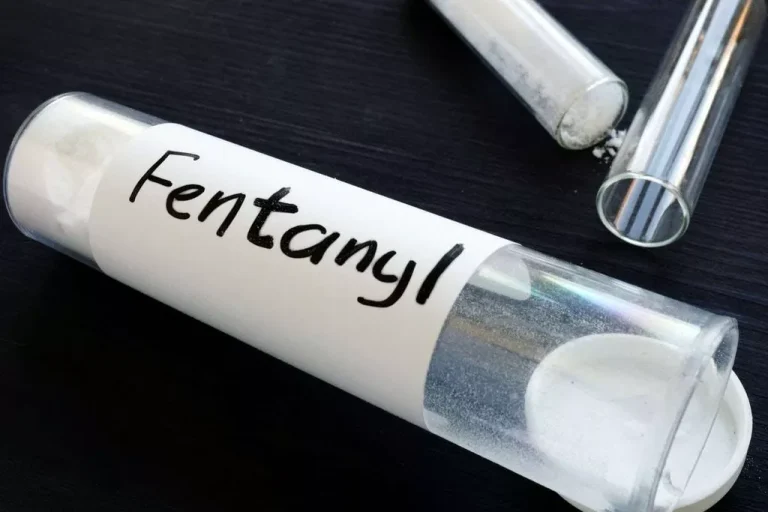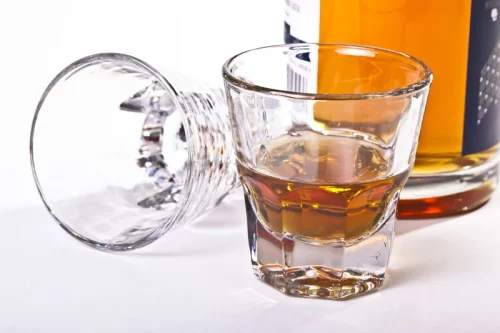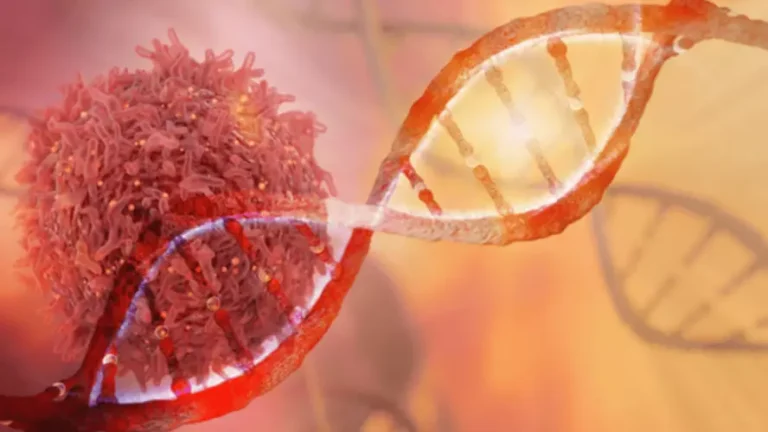
“Alcohol brands claim zero alcohol products are aimed at only adults, however the study found that young people often nominated their own age group as the one these products would most commonly appeal to. In focus group discussions, some participants identified that zero alcohol products could act as a gateway to future alcohol use by enabling young people to become accustomed to the taste of alcoholic products. “One of the problems is that people feel out of control. Cancer, first of all, it’s terrifying to so many of us — ‘It must be genetic, and there’s nothing I can do about it.’ No, there’s a lot you can do about it,” LaPook said. Earlier this year, the American Cancer Society projected U.S. cancer cases would eclipse 2 million for the first time this year. However, the report said lower smoking rates, earlier detection and improved treatments have lowered death rates over the past three decades.
How Does Alcohol Increase Cancer Risk?
However, some individuals with the defective form of ALDH2 can become tolerant to the unpleasant effects of acetaldehyde and consume large amounts of alcohol. Epidemiologic studies have shown that such individuals have a higher risk of alcohol-related esophageal cancer, as well as of head and neck cancers, than individuals with the fully active enzyme who drink comparable amounts of alcohol (31). These increased risks are seen only among people who carry the ALDH2 variant and drink alcohol—they are not observed in people who carry the variant but do not drink alcohol. Alcohol consumption is a well-established risk factor for cancer and has been linked to cancers of the oral cavity and pharynx, oesophagus, liver, colorectum and breast. While studies have provided evidence on alcohol’s carcinogenic potential, further understanding of alcohol’s pathways to cancer development will inform the direction of future research.
Can drinking red wine prevent cancer?
Therefore, new studies are needed to quantify the contribution of alcohol to the current global burden of cancer. The study team used DNA samples from approximately 150,000 participants (roughly 60,000 men and 90,000 women) in the China Kadoorie Biobank study and measured the frequency of the low-alcohol tolerability alleles for ALDH2 and ADH1B. The data were combined with questionnaires about drinking habits completed by participants at recruitment and subsequent follow-up visits.
Alcohol Consumption and the Risk of Cancer
Most health guidelines recommend moderation or abstention from alcohol to reduce cancer risk. No conclusive evidence exists to suggest that drinking red wine, or any alcohol, can help prevent cancer. Additionally, people with a family history of certain cancers may need to be particularly cautious about alcohol intake. In fact, there are likely several different ways it can raise risk, and this might depend on the type of cancer. Noelle LoConte, M.D., an oncologist at the University of Wisconsin-Madison who studies alcohol and cancer risk, said that these findings confirm what doctors have long observed.
Smoking Study
The author suggested that the decreased antigen-specific antibody production in the cancer patients could be related to upregulation of suppressive cells in these patients (Wustrow 1991). For oral and oropharyngeal cancer, an MR study using genetic data on 6000 oral or oropharyngeal cancer cases and 6600 controls found a positive causal effect of alcohol consumption independent of smoking [16]. The authors concluded that previous estimates of the association between alcohol and oral and oropharyngeal cancer from observational https://sober-home.org/ studies may have been underestimated [16]. Another MR study on UK Biobank data found that drinking alcohol, especially above the UK’s low-risk guideline of up to 14 units per week, was causally related with head and neck cancers, but not breast cancer [17]. A further updated MR study using UK Biobank data did not find an association between alcohol exposure and cancer of any site, though they noted limitations of a lack of precision in their analyses due to low variance explained by the single nucleotide polymorphisms [18].
However, some of the associations among alcohol drinking premenopausal women were limited to those taking oral contraceptives [40]. Cancers of the upper aerodigestive tract can also be characterised as having a more than multiplicative increased risk when alcohol and tobacco are consumed together. For oesophageal squamous cell carcinoma, a cohort study in the Netherlands observed an eight times risk among current smokers who drank 15 g alcohol or more per day, compared with never smokers who consumed less than 5 g alcohol per day [12]. Drinking alcohol increases the risk of several cancer types, including cancers of the upper aerodigestive tract, liver, colorectum, and breast.
For example, the gender of the study participants may play a role because potential differences in alcohol breakdown (i.e., metabolism) exist between men and women and may systematically influence the overall pooled estimates (Corrao et al. 1999, 2000). But given the length of the study and concerns some patients have regarding the long-term effects of GLP-1 drugs, these findings are reassuring in showing no increased risk of cancer, she adds. Previous research has shown that there are several modifiable risk factors — such as smoking, alcohol use, obesity, and a sedentary lifestyle — that can increase a person’s cancer risk.
Clearly, more mechanistic research is needed in murine models to serve as a template for further examination of the complex interactions connecting alcohol to tumor growth, metastasis, and survival in humans. For female breast cancer, the meta-analysis described here confirms the existence of a strong dose-risk relationship between alcohol consumption level and breast cancer risk. https://sober-home.org/the-textures-of-heroin-user-perspectives-on-black/ It is possible, however, that for breast cancer and other types of cancer related to disturbances in female hormone levels, alcohol may act by altering the metabolism and blood levels of female hormones, such as estrogen (Longnecker 1994). Moreover, a recent study suggests that the association may be limited to women with a family history of breast cancer (Vachon et al. 2001).
Tumors also release factors that can directly or indirectly suppress antitumor immune responses, thus facilitating angiogenesis, invasion of surrounding tissues, and metastasis to distant sites in the body (for a general review, see Jung 2011). (For more information on the processes involved in tumor metastasis, see the sidebar.) The following sections will review the role of alcohol in cancer growth and progression, both in humans and in animal models. The effects of chronic alcohol consumption on tumor growth and metastasis of the highly invasive and spontaneously metastatic B16BL6 melanoma inoculated subcutaneously were studied in female C57BL/6 mice administered ethanol in drinking water. In an initial study, consumption of 2.5 percent, 10 percent, or 20 percent w/v ethanol in drinking water for 6 to 8 weeks before tumor inoculation and continuing thereafter did not affect primary tumor growth (Blank and Meadows 1996).
These values indicate only a weak association of alcohol with these types of cancer, which may possibly result from residual bias in the analysis or from confounding factors, such as diet. Therefore, one cannot draw any conclusions regarding a potential causal role of alcohol in the development of these cancers. The results of eight appropriate studies were pooled to determine the relationship between alcohol consumption and the risk of cancer at all sites combined. This analysis found that alcohol consumption of at least 50 grams (i.e., 4 standard drinks) per day significantly increased the risk of developing any type of cancer.
A multitude of studies suggest an association between genetic variants and alcohol consumption on cancer risk in humans. Here we summarize the published studies on the combined effects of alcohol drinking and polymorphisms in genes for ADH, ALDH, CYP2E1, and methylene-tetrahydrofolate reductase (MTHFR) on the risk of alcohol-related cancer. These experiments showed that 10 percent w/v ethanol did not affect metastasis after intravenous tumor inoculation in female C57BL/6 mice consuming alcohol for 2 weeks or spontaneous metastasis in mice injected 1 week after initiating ethanol feeding. However, lung metastasis was inhibited if intravenous injection of tumor cells occurred at 4, 6.5, 7, and 12 weeks after initiation of 20 percent w/v ethanol.
A catalase-mediated reaction in the peroxisomes is considered a minor metabolic pathway of alcohol metabolism. People should consider discussing their alcohol use with a healthcare team to understand the specific implications for their treatment and overall health. However, some risks may persist, especially if there has been heavy or long-term alcohol use. For instance, variations in genes related to estrogen metabolism and response can modify the risk in females who consume alcohol. A previous headline for this story on the NPR homepage incorrectly said 34 million cancer cases had been linked to alcohol use in 2020. “Drinking trends show that alcohol use is increasing in countries in sub-Saharan Africa. We predict that the number of cases of cancer in Southern Africa will increase by two-thirds over the next 20 years, and in Eastern Africa, cases will double,” says Rumgay.
Because these alleles are allocated at birth and are independent of other lifestyle factors (such as smoking), they can be used as a proxy for alcohol intake, to assess how alcohol consumption affects disease risks. The December 2020 NCI Workshop highlighted existing evidence on the alcohol-cancer link, and revealed opportunities to strengthen relevant scientific knowledge. Additionally, the workshop panel recognized that the health, including cancer, impact of increases in alcohol consumption resulting from the coronavirus pandemic (60) will need to be carefully assessed, particularly if these behaviors are sustained long-term. Alcohol regulations are designed to ensure an orderly marketplace, and to minimize or reduce the health, social, and economic harms due to consumption. The U.S. Community Preventive Services Task Force’s (CPSTF) Guide to Community Preventive Services (54), and WHO’s 2010 Global Strategy to Reduce the Harmful Use of Alcohol(8) describe a range of evidence-based alcohol control policies.

However, multiple studies have linked the immunosuppressive effects of alcohol with tumor progression and metastasis. The influence of alcohol on the host immune system and the development of possible effective immunotherapy for cancer in alcoholics are also discussed here. The conclusive biological effects of alcohol on tumor progression and malignancy have not been investigated extensively using an animal model that mimics the human disease.

Nearly 4% of cancers diagnosed worldwide in 2020 can be attributed to alcohol consumption, according to the World Health Organization. In the United States alone, about 75,000 cancer cases and 19,000 cancer deaths are estimated to be linked to alcohol each year. Researchers and health professionals can do more to help break down these misconceptions, Dr. LoConte added. “We need to really make sure that we reinforce the message that all alcohol increases cancer risk,” she said.
For a more detailed description of these statistical analyses, see the textbox, p. 265, and the articles by Corrao and colleagues (1999, 2000). Sonali Thosani, an endocrinologist at MD Anderson, agreed that it’s reassuring to see reduced cancer risks with long-term use of these drugs. “When GLP-1s first came out, there was some concern about them causing an increased risk of pancreatic cancer,” she says, and studies have shown mixed results on risk of thyroid cancer with these medications, but these findings are encouraging. Lung cancer had the largest number of cases tied to preventable risk factors assessed by researchers. The next most common preventable cancer included 50,570 cases of skin melanoma and 44,310 colorectal cancers. They found that the more alcohol people drink, the higher their risk of an alcohol-related cancer.
- Behaviors that can raise cancer risk include smoking, exposure to second-hand smoke, drinking alcohol and being overweight.
- These findings suggest that clinicians may underappreciate cancer risks due to alcohol, and need additional guidance to reinforce clear and consistent messaging to effectively discuss this issue with their patients.
- Increased risk of HCC in patients with MTHFR CC genotype who consumed a high alcohol diet had been reported by Saffroy et al. [84].
- Following epidemiological evidence of the link between alcohol use and risk of cancer at multiple sites, several pathways have been investigated to explain the carcinogenic effects of alcohol.
The DNA adducts in question include N2-ethylidene-2′-deoxyguanosine, N2-ethyl-2′-deoxyguanosine, N2-propano-2′-deoxyguanosine (PdG), and N2-etheno-2′-deoxyguanosine [23]. The PdG adduct may form additional highly genotoxic structures such as DNA-protein cross-links and DNA interstrand cross-links which may confer carcinogenesis [24]. Once consumed, alcohol is metabolised by enzymes including alcohol dehydrogenase (ADH), cytochrome P-450 2E1 (CYP2E1) and bacterial catalase, producing acetaldehyde [20]. Acetaldehyde is highly reactive towards DNA and has several carcinogenic and genotoxic properties. Ms. Stafford said there were currently no standards limiting the ways they simulate alcoholic products, nor were there restrictions on marketing and sales. “Zero alcohol ads are reaching young people through several avenues, including popular social media platforms like Instagram and TikTok,” he said.
The laboratory mouse is one of the best experimental models, due to the physiologic, genetic and molecular similarities to humans, its short lifespan, breeding capacity, and the limitless options offered by genetic engineering. Here, we review the organs involved in alcohol-related cancer, underlying potential molecular mechanisms, and current challenges as well as implications of in vivo experimental models used to study cancer pathogenesis in alcoholics. In addition, we describe our current limited understanding of the influence of alcohol on the host immune system and the development of possible effective immunotherapy for cancer patients with alcohol abuse. When people use them together, they can cause more extensive genetic damage, leading to mutations that increase the risk of cancer.

Use of N-nitrosobis(2-oxopropyl)amine (BOP) in the Syrian golden hamster [102] and 7,12-dimethylbenzanthracene (DMBA) in rats [103] are used for the development of pancreatic neoplasms. Transplacental induction of pancreatic ductal cancer by ethanol and 4-(methylnitrosamino)-1-(3-pyridyl)-1-butanone (NNK) in hamsters has been used to investigate a synergistic effect of alcohol drinking and cigarette smoking on fetuses [104]. In one of the study, DMBA-induced pancreatic carcinogenesis in mouse model verified the role of alcohol in inducing pancreatic adenocarcinoma [105].
However, these bacteria have limited capacity to break acetaldehyde down further into its non-harmful compound acetate, thus the oral epithelia are further exposed to acetaldehyde [21,44]. Acetaldehyde concentrations in the saliva of drinkers are between 10 and 100 times higher than in the blood; this is further doubled in smokers who drink alcohol as tobacco smoke contains high levels of acetaldehyde [21]. ERs are important transcription factors within cells and may provide the main pathway by which alcohol promotes breast tumour growth [40]. Elevated concentrations of oestrogen due to alcohol use may lead to increased transcriptional activity of ER (up to 15 times higher than normal activity), resulting in proliferation of ER+ cells [39]. ROS can act as messengers in intracellular signalling pathways to activate the transcription factor nuclear factor κB (NF-κB).




